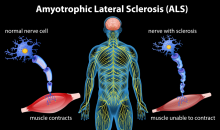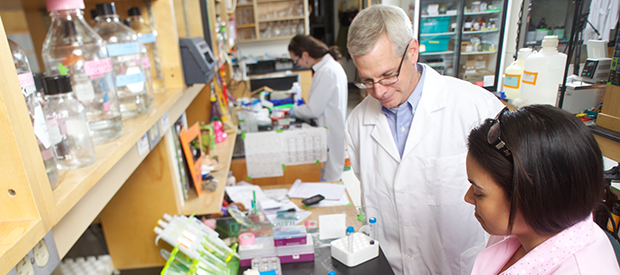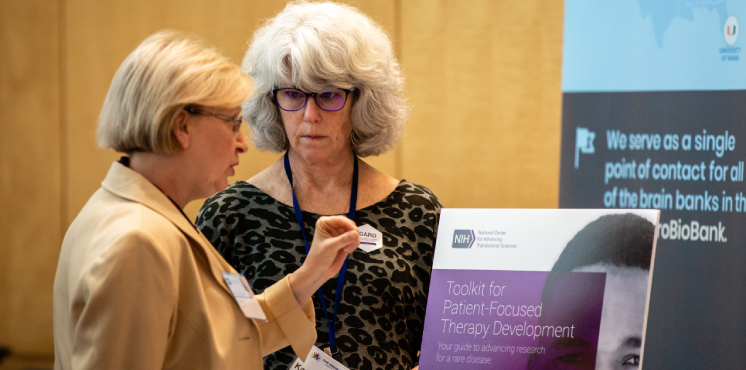Rare Diseases Clinical Research Network (RDCRN) (original) (raw)
The Rare Diseases Clinical Research Network (RDCRN) program is designed to advance medical research on rare diseases by providing support for clinical studies and facilitating collaboration, study enrollment and data sharing.
About the RDCRN
The Rare Diseases Clinical Research Network (RDCRN) program advances medical research on rare diseases by providing support for clinical studies and facilitating collaboration, study enrollment and data sharing. Through a network of consortia, scientists from multiple disciplines at hundreds of clinical sites around the world work in partnership with patients and patient advocacy groups to study more than 280 rare diseases. The program is federally mandated by Congress: The Rare Diseases Act of 2002 directed the Division of Rare Diseases Research Innovation to support regional "RDCRCs of Excellence" for clinical research, career enhancement, and demonstration of diagnostic, prevention, control and treatment methods for rare diseases.
The RDCRN is designed to promote highly collaborative, multi-site, patient-centric, translational and clinical research. The Rare Diseases Clinical Research Consortia (RDCRCs) focus on unmet clinical trial readiness needs that will move the field of research forward from its current state to one closer to successfully developing treatments for patients.
The RDCRN facilitates clinical research in rare diseases through support for consortia via:
- Collaborative activities, including multisite longitudinal studies of individuals with rare diseases and/or clinical trials
- Career enhancement — encouraging the next generation of rare disease researchers
- Pilot and feasibility projects
The consortia within the RDCRN are supported by a Data Management and Coordinating Center that provides:
- Data management to facilitate high quality data standards, collection, storage and sharing
- Clinical research support
- Access to information about rare diseases for basic and clinical researchers, academic and practicing physicians, patients and the public
RDCRN Clinical Research
RDCRN consortia support a broad range of clinical research, including clinical trial readiness, natural history studies, identification of biomarkers and outcome measures, and early phase clinical trials.
A Collaborative Environment
Funding and scientific oversight for the RDCRN are provided by NCATS and nine other NIH entities: the Eunice Kennedy Shriver National Institute of Child Health and Human Development; the National Heart, Lung and Blood Institute; the National Institute of Allergy and Infectious Diseases; the National Institute of Arthritis and Musculoskeletal and Skin Diseases; the National Institute of Dental and Craniofacial Research; the National Institute of Diabetes and Digestive and Kidney Diseases; the National Institute of Mental Health; the National Institute of Neurological Disorders and Stroke; and the Office of Dietary Supplements. In addition, patient advocacy organizations may contribute funding.
Data sharing is a key aspect of the RDCRN framework and a priority for many stakeholders involved with the network and the RDCRN Data Management and Coordinating Center provides non-binding guidance to consortia on general principles for data sharing and key factors to consider when developing data sharing policies. For more information, review the RDCRN Data Sharing Guidance.
RDCRN News

Protein in the Blood Can Help Predict ALS Survival and Decline, Play Role in Developing Treatments
May 13, 2025 - NCATS News
- Our Impact on Clinical Trials
- Our Impact on Rare Diseases
- Rare Diseases Clinical Research Network (RDCRN)
Researchers showed how the level of a protein found in the blood might be used in developing new drugs to treat ALS.
Navigating a Rare Disease
June 3, 2025 - Grantee/Partner News
- Genetic and Rare Diseases (GARD) Information Center
- Rare Diseases Clinical Research Network (RDCRN)
Protein in the Blood Can Help Predict ALS Survival and Decline, Play Role in Developing Treatments
May 13, 2025 - NCATS News
- Our Impact on Clinical Trials
- Our Impact on Rare Diseases
- Rare Diseases Clinical Research Network (RDCRN)
Researchers showed how the level of a protein found in the blood might be used in developing new drugs to treat ALS.
A Combination of Tests Shows Learning Capabilities of Nonverbal Children with Rare Brain Disorder
February 25, 2025 - NCATS News
- Our Impact on Rare Diseases
- Rare Diseases Clinical Research Network (RDCRN)
NCATS-funded scientists found that a pair of tests can measure nonverbal learning skills and show the cognitive abilities of children with Aicardi-Goutières syndrome.
I Am Translational Science Video
Child neurologist Mustafa Sahin, M.D., Ph.D., shares how advances in translation helped his team provide new treatments to young patients with rare neurodevelopmental disorders.
RDCRN Open Funding Opportunities

Find open funding opportunities for RDCRN.
Related Research

Rare Diseases Registry Program (RaDaR)
We provide easily accessible guidance to the rare diseases community on how to set up and maintain high-quality registries.

Bespoke Gene Therapy Consortium (BGTC)
The Bespoke Gene Therapy Consortium focuses on developing platforms and standards to speed the development and delivery of gene therapies for rare diseases.

Toolkit
Our Toolkit for Patient-Focused Therapy Development is a collection of online resources to assist patient groups in the research and development of new treatments.